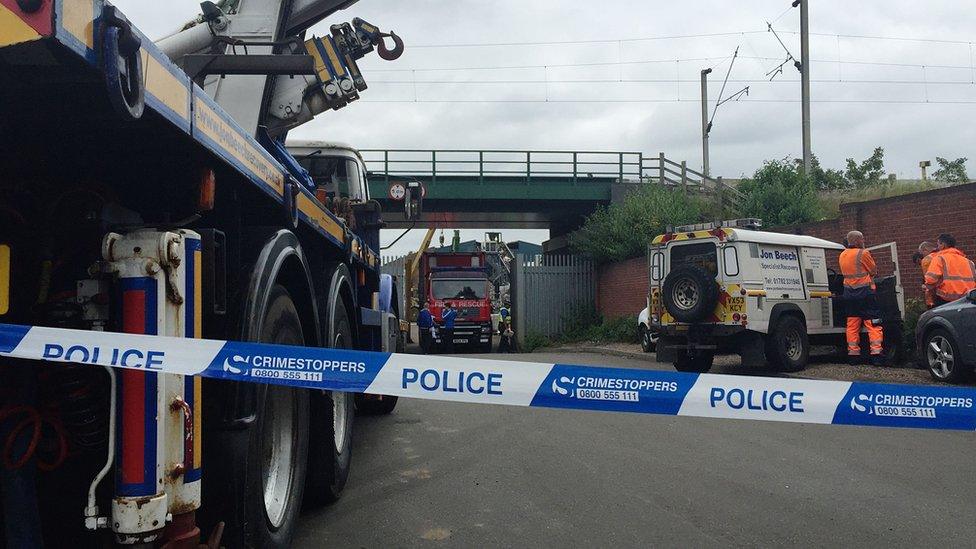Birmingham wall collapse death families 'await answers'
- Published
Wall collapse families query time taken to get inquest
Relatives of five African men crushed by a wall in 2016 say they would have answers by now if they had been white and British, the BBC has been told.
All five, from The Gambia and Senegal, died when 15ft of concrete fell on them at a scrap metal plant in Birmingham.
A spokesman for their families said the two-year wait for an inquest, due to take place next month, had "taken a toll" on those left behind.
The health and safety watchdog's investigation has yet to conclude.
Ousmane Kaba Diabi, 39, who was from Senegal, Alimamo Kinteh Jammeh, 45, Bangally Tunkara Dukureh, 55, Saibo Sumbundu Sillah, 42, and Muhamadou Jagana Jagana, 49, died in the incident.
The men were all Spanish citizens with dual Gambian nationality.
'How long?'
They had come to the UK to work, some with their families, and were employed alongside other Gambians at the scrap metal plant in Nechells.
The site was closed for six weeks after the incident.
No criminal prosecutions have been brought over the deaths.
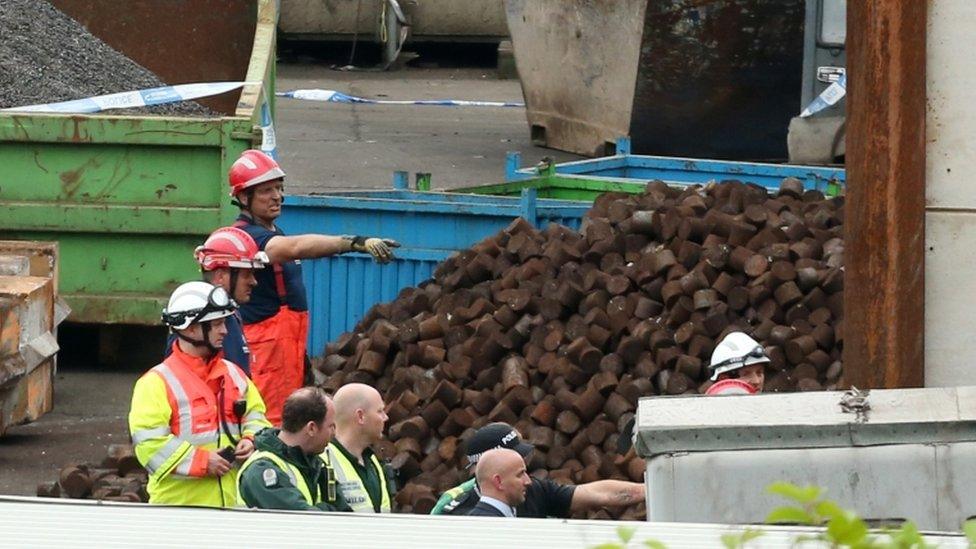
The men were all confirmed dead at the scene
Lamin Yaffa, chairman of the Gambian Islamic Centre, said relatives are frustrated and upset at not knowing what happened to their loved ones.
Speaking to the BBC on their behalf, he said: "It is really hard to say, but sometimes it might be that you feel okay, this is me, I'm a foreigner in this country, is it going to be the same thing as a British man, born and bred in this country...?
"How long will it take for them to come to a conclusion, to tell the families how their loved ones died? It has taken a toll."
When asked if the families believed that, had they been white and British, investigations would have concluded, Mr Yaffa said: "This is what the families, and this is what many people are saying within the community.
"Even if, say, I don't believe that, you can't just take that out of their minds... what else can you say?"
"I think it would have been different."
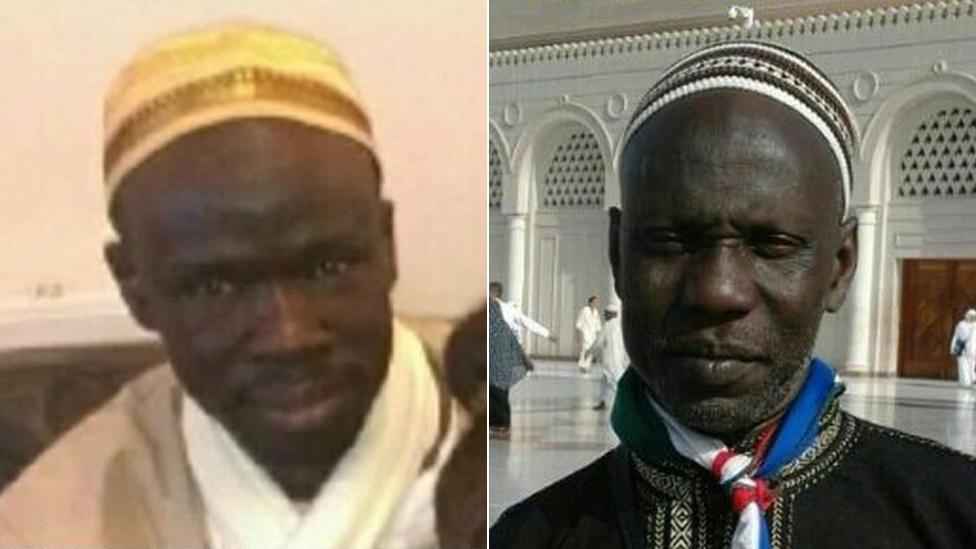
Alimamo Jammeh (l) Bangally Tunkara Dukureh both died in the incident
In December, the investigation was handed over to the Health and Safety Executive (HSE) following discussions with the Crown Prosecution Service (CPS).
The CPS told the BBC it gave the force early investigative advice and and no file of evidence had been passed to them.
In August, the HSE confirmed its investigation would not be concluded until after the inquest, to be held on 7 November in Birmingham, and "any directions from the coroner, and any other relevant information from the inquest, can be taken into account".
'Seek redress'
Responding to the timescale of their investigation, a spokesman said: "HSE assumed primacy of the investigation in December 2017.
"It is perfectly normal for us to allow the inquests to run their course before our inquiry concludes. This also allows us to carefully monitor any evidence heard by the inquest which may be relevant to our investigation, ensuring our work has been as thorough as possible.
"Following the inquests, we will make decisions on whether criminal proceedings can be brought."
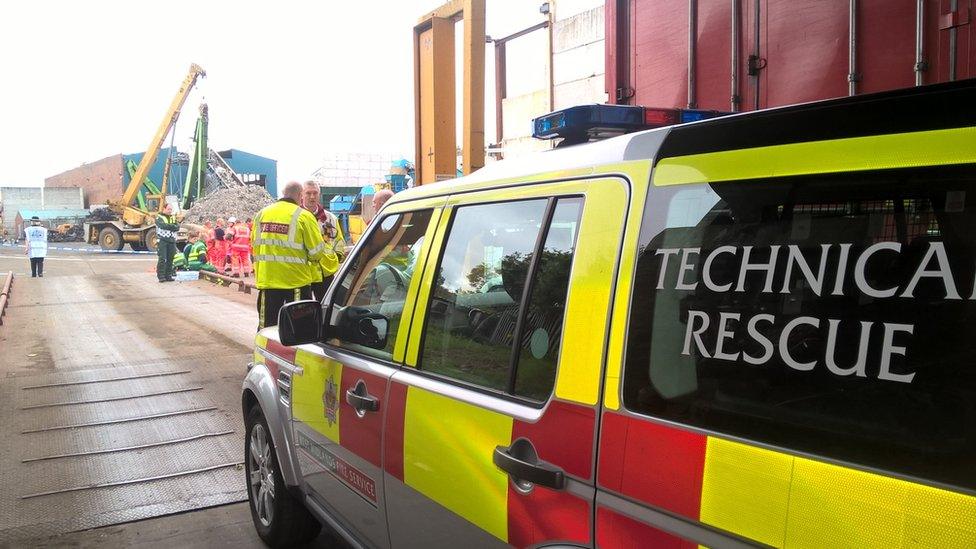
The men had come to the UK to work and were employed along with other Gambians at the plant in Nechells
The BBC understands the families have been refused legal aid for an inquest next month.
A crowd-funding page has been set up to help cover legal costs.
In a statement, Francis Blain, High Commissioner for Gambia, said the tragedy would have an "everlasting negative impact" on the families and Gambian community.
He said the they were "eager to draw a conclusion to this matter and to seek redress" but could not do anything until "investigations into this tragic disaster" had concluded.
The commissioner hoped any outcome would be "reflective of a thorough and impartial investigation", he added.
Harriett Baldwin, Minster for Africa and Mid-Worcestershire MP, said she was "very sad...to hear" the families were still waiting for answers.
"I will be more than happy to find out using my channels as minister for Africa what is taking so long and find out what the latest is, although a full and thorough investigation should take place," she added.
- Published7 July 2017
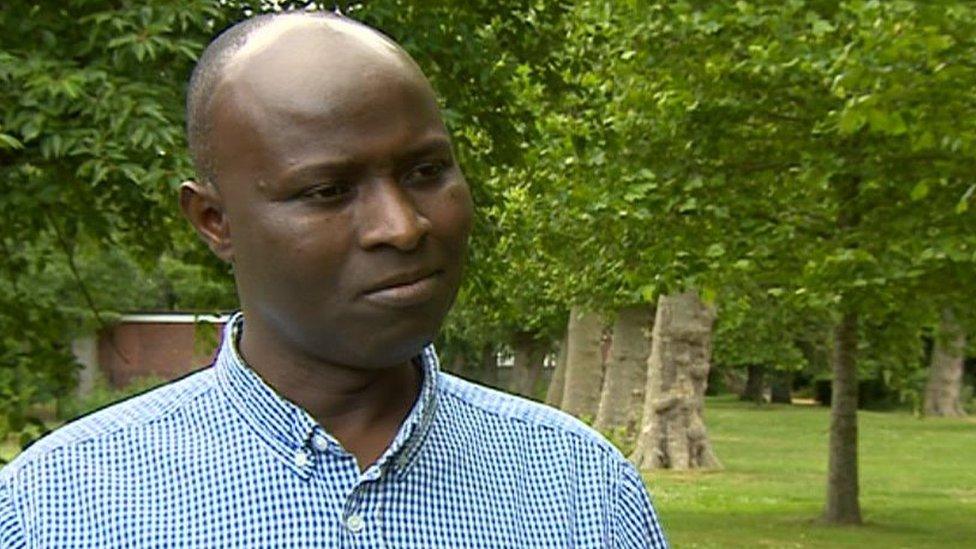
- Published8 July 2016

- Published7 July 2016
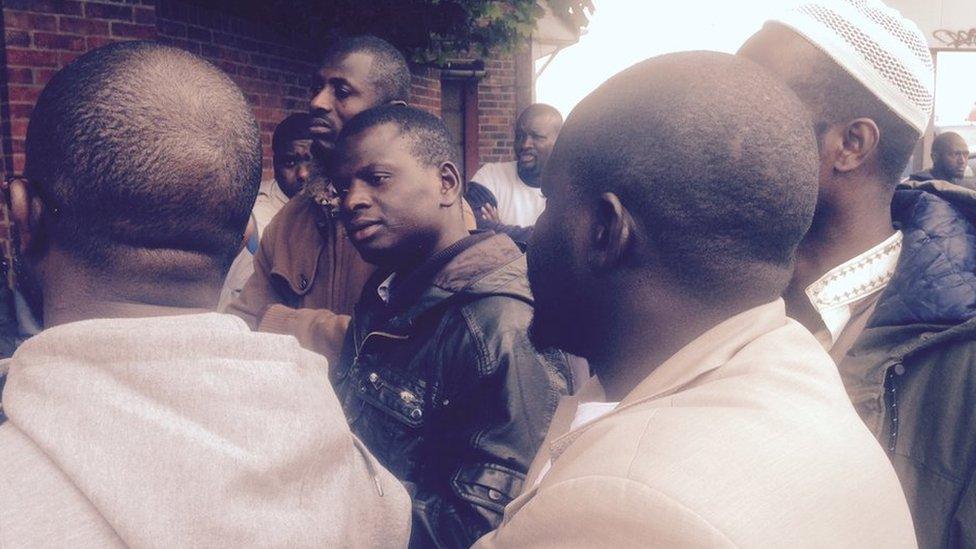
- Published7 July 2016
